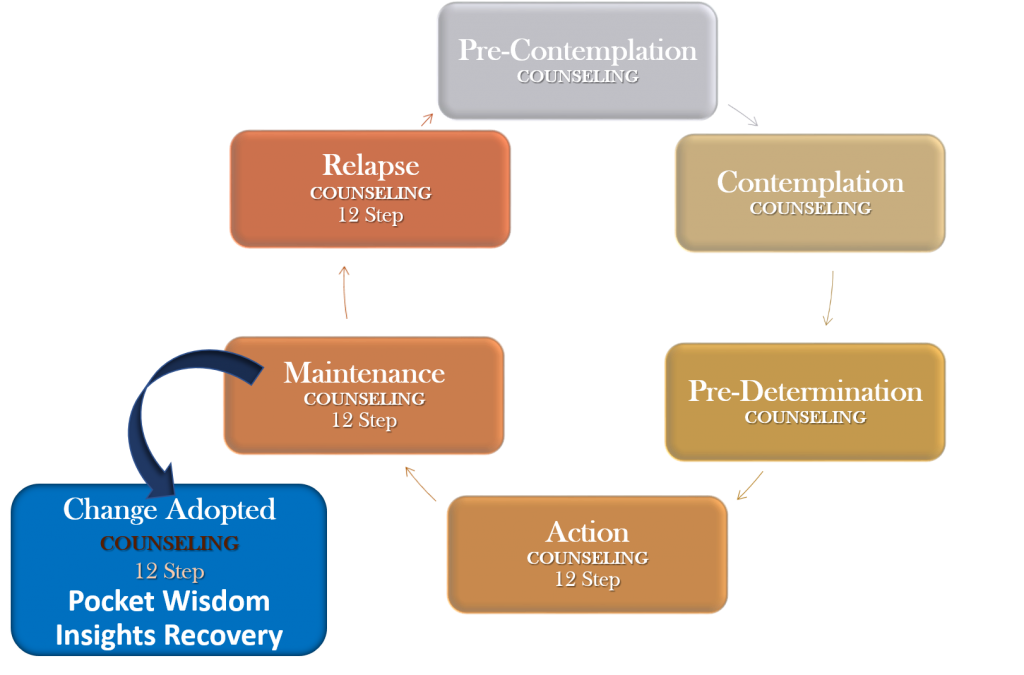
Opening Insights
The Transtheoretical Model of Change created by Prochaska and DiClemente (1983) is used readily within addiction cultures and incorporates 6 stages of change, namely: pre-contemplation, contemplation, pre-determination, action, maintenance and relapse. Notably this cycle is missing one key element: change. From this description it is evident that unless the recovering addict is able to move from maintenance into change, the cycle of change is never ending, with minimal hope or chance of resolution.

Informational Insights
In addiction Recovery change is usually focused on behavior and cognition (thinking), yet it is our beliefs that lie at the heart of our addictive behaviors, emotions, feelings, attitudes and perceptions.
Emotional Sobriety is need to creating lasting change, break the cycle and discover resolution. Emotional Sobriety is achieved through an educational process that teaches Emotional Maturity. Emotional Maturity as recognized by Alcoholics Anonymous (AA) is the ability to make mature adult decisions coming from a place of self-authority, self-responsibility and self-accountability.
While therapy, counseling and Twelve Step principles are essential in the cycle, only effective education and monitoring (accountability measures) can and have been proven to provide the recovering addict with the tools to uncover and discover emotional sobriety, emotional maturity and lasting change. Like the concept of motivational interviewing preaches, the addict will only change when and if they want to (Rollnick & Miller, 1991).
PWI Recovery Insights empowers recovering addicts with the tools to understand the different aspects of change, educates them in a non-threatening and non-confrontational way, while also providing an accountability assurance.
The educational process comprises of detailed and holistic models that incorporate the theories of Bern, Beck, Maslow, Frankl, Rogers, Jung, Sternberg, Gardner, Miller and others. These models work together to provide clients with the tools to discover and piece together the events of their lives, in order to come to an appreciation and acceptance of the process.
Possibilities for Consideration
Take a moment and examine…
- As you reviewed the material above, what stood out to you?
- What is the potential impact, economically and/or socially?
- What action is needed to stop or support this idea?
- You may want to consider whether you:
- want to be aware of,
- should become supportive of,
- would want to be active in this topic?
Add Your Insight
I have been impressed with the urgency of doing. Knowing is not enough; we must apply.
Being willing is not enough; we must do.
LEONARDO DA VINCI
